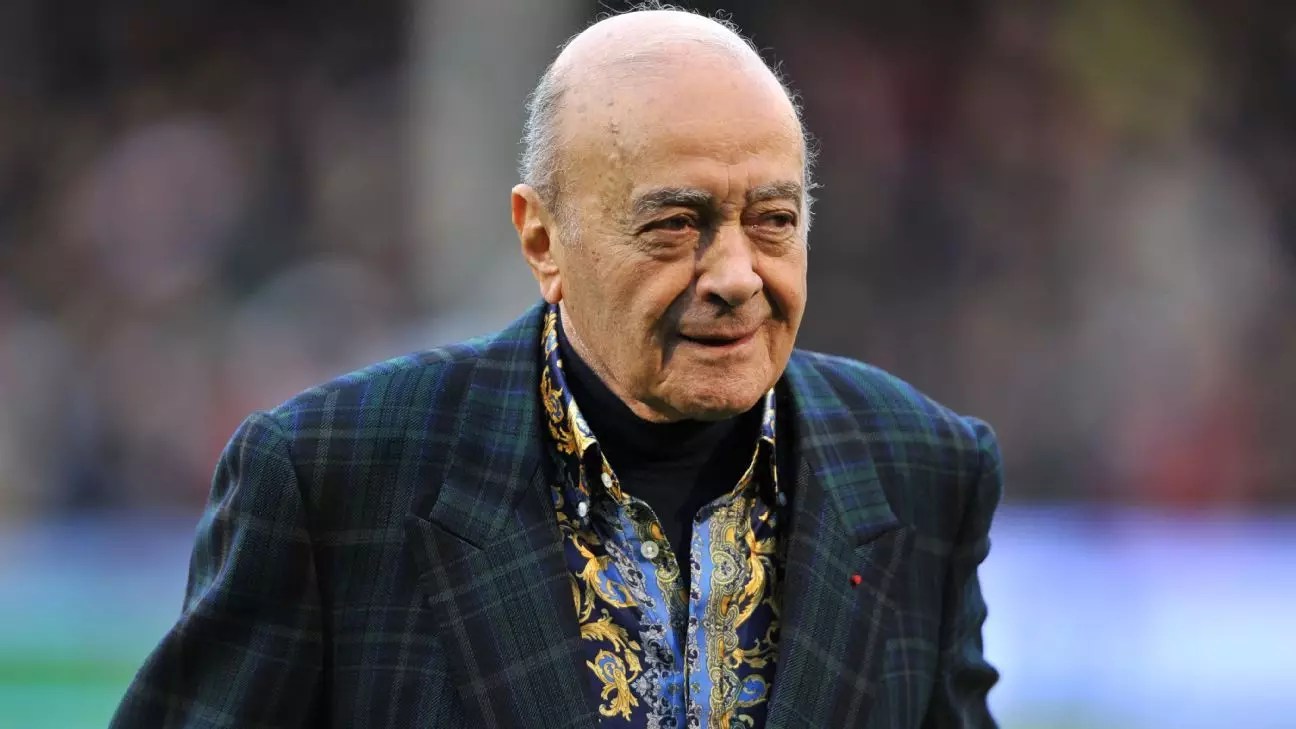The world of sports has always been accompanied by underlying narratives that often go unnoticed until a brave soul decides to speak out. Recently, former captain of Fulham’s women’s team, Ronnie Gibbons, became the cornerstone of a troubling revelation regarding Mohamed Al Fayed, the former owner of the football club. In a harrowing account shared with The Athletic, Gibbons disclosed her experiences of sexual assault by Al Fayed, painting a disconcerting picture of predation in a space that was supposed to be supportive and empowering.
Gibbons’ claims, which shed light on incidents from 2000 when she was just 20, include instances of unwanted physical contact and coercion under the guise of professional interaction. This brings forth a pressing conversation about the alleged misconduct that has plagued prominent figures in various industries, and sports are no exception. The juxtaposition of Al Fayed’s status as a powerful figure and Gibbons’ vulnerability unveils the precarious dynamics often present in institutions where power is concentrated in a few hands.
The Institutional Response and Broader Implications
In response to Gibbons’ revelations, Fulham publicly expressed its empathy and support for her, highlighting a critical step in addressing such allegations. However, the club also indicated they were yet to determine the extent of any impact Al Fayed may have had on their organization during his ownership from 1997 to 2013. This inquiry raises essential questions about how organizations historically handle accusations against influential individuals. It also emphasizes the necessity for a proactive approach towards protecting vulnerable players and staff from potential abuse.
The police’s statistics, highlighting the claims of 40 women against Al Fayed, coupled with 21 previous allegations between 2005 and 2023, underline a troubling trend that showcases a widespread pattern of alleged misconduct. Despite these serious allegations, Al Fayed lived his life with apparent impunity until his passing in 2022, never facing legal prosecution. This fosters a climate of fear where victims often feel disempowered and discouraged from coming forward due to the risk of social and professional repercussions.
A Personal Struggle with Shame and Pain
Gibbons’ narrative is not only a whistleblowing account but a personal journey of grappling with shame that many survivors face. Her statement encapsulates the emotional aftermath of such traumatic experiences, where the burden of silence can lead to enduring psychological harm. The brave act of speaking out can act as a double-edged sword, offering a path to healing while simultaneously forcing one to revisit painful memories.
Her hope that sharing her truth will help her heal signifies a larger call for solidarity among survivors. It exemplifies the crucial role that narratives of bravery play in encouraging others to share their stories, ultimately fostering a culture where accountability becomes the standard rather than the exception.
Gibbons’ revelations serve as a reminder of the pervasive issues of misconduct that can infiltrate sports and other domains. As institutions begin to confront uncomfortable truths about their histories, it is essential for them to foster environments that prioritize safety and transparency. Only then can they hope to rebuild trust and promote an atmosphere of respect and dignity for all participants. In doing so, they will not merely react to incidents but actively work towards a more inclusive and secure future within sports and beyond.


Leave a Reply